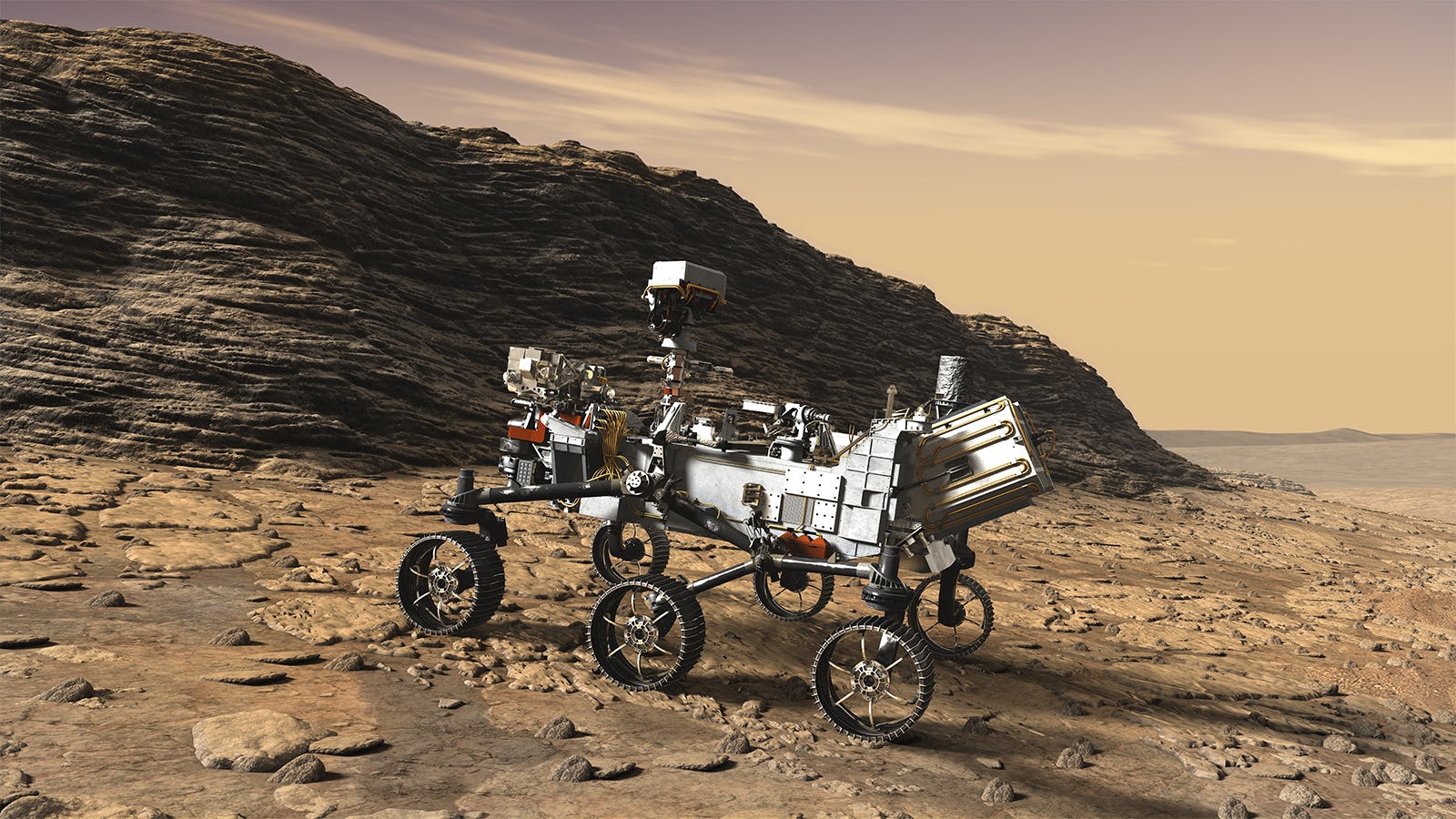
When the Perseverance rover landed on Mars in February 2021, it brought with it a suite of instruments, including the typical cameras and the less typical lasers. But it also brought something else — the first microphone to function and record on the Red Planet.
Now, new research published in Nature on Friday reveals a weird quirk of Mars that has been hidden from us all along: The Red Planet has not one, but two speeds of sound. The finding has major implications for any future human endeavor to Mars.
“It’s a new sense of investigation we’ve never used before on Mars,” says Sylvestre Maurice, an astrophysicist at the University of Toulouse in France and lead author of the study, in a statement. Maurice is referring specifically to the Perseverance rover’s SuperCam, which has a microphone built into it.
“I expect many discoveries to come,” he adds.
Measuring the speed of sound on Mars
Long ago, Mars lost most of its atmosphere. Once, the Red Planet’s old atmosphere allowed liquid water to pool on the surface of the planet — potentially sustaining life on the surface. But thanks to the force of solar winds buffeting the planet, most of that protective atmosphere is gone now.
Today, Mars is encased in a tenuous carbon dioxide atmosphere less than one percent the pressure of Earth’s at sea level. This unusual (for us at least) atmosphere is what gives the Red Planet its unusual acoustic properties, the Nature paper explains.
The discovery — Because of Perseverance’s unique toolkit, for the first time, NASA scientists have the ability to listen to sounds on Mars and compare their properties. The discovery stems from scientists on Earth listening to the pew-pew of Perseverance’s lasers cracking into rocks — they realized these sounds seemed governed by different laws than the sound of Perseverance’s copter companion Ingenuity’s rotors whirring.
Already, measurements by Ingenuity had put the speed of sound on Mars at 240 meters per second — about 100 meters per second slower than the speed of sound on Earth (347 meters per second). These sounds, according to the paper, are also 20 decibels weaker in volume than sounds on Earth.
But Perseverance’s laser sounds are swifter than Ingenuity’s whir. The sound of the laser pulse moves 10 meters per second faster — 250 meters per second. The reason why seems to be to do with the sounds’ acoustics: The lasers are high-pitched, but the rotor whir is low-pitched.
“On Earth, the sounds from an orchestra reach you at the same speed, whether they are low or high,” Maurice says in an interview with Agence France-Presse.
“But imagine on Mars, if you are a little far from the stage, there will be a big delay.”
So you would hear the oboe far sooner than the tuba, to follow the analogy. This means future Mars astronauts could experience unusual audio dissonance — they will hear higher-pitched sounds sooner than lower-pitched sounds, even if they come from the same place.
Don’t believe it? You can listen to the sounds on Mars yourself:
Why 10 meters a second matters — While 10 meters per second may not sound like much of a difference, the Centre National de la Recherche Scientifique in France, the nation’s largest scientific agency, says it would actually cause two astronauts to have trouble understanding each other if they tried to have a conversation while both were standing just 15 feet apart.
There are a few other unusual quirks about Martian sounds — for instance, the distance sounds actually carry. According to NASA, low-pitched sounds on Mars begin to dim down at just 26 feet from their source. High-pitched sounds might not even make it that far and remain audible.
“Mars is very quiet because of low atmospheric pressure,” says Baptiste Chide in a statement. Chide is a researcher at Los Alamos National Laboratory in New Mexico and a co-author of the study.
“But the pressure changes with the seasons on Mars,” he adds. In Fall, the pressure changes and so sounds on the planet may be different, too.
“We are entering a high-pressure season,” Chide says. “Maybe the acoustic environment on Mars will be less quiet than it was when we landed.”







